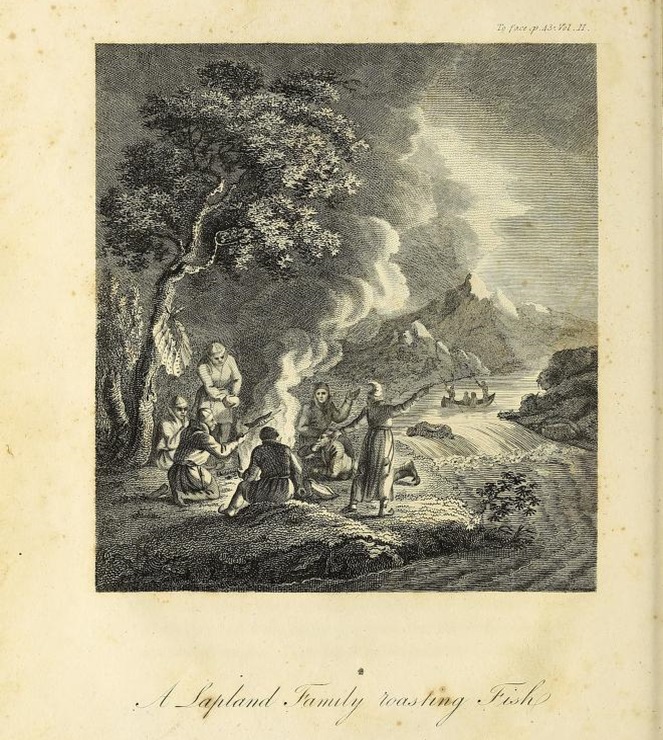Students from the Arctic Studies Master Program together with Jun.-Prof. Joanna Kodzik have developed a project about historical sources concerning Indigenous and local food traditions experienced and told by European travelers, scholars, or missionaries from the 17th -19th centuries.
Within the framework of their course on the History of the Arctic, the students prepared presentations focusing on book chapters written in English, German, and French about food in Sápmi, the Faroe Islands, Iceland, Greenland, Newfoundland, Labrador, and Russia. Source material including well-known accounts such as Johannes Schefferus’ Lapponia (1673), David Cranz’s History of Greenland (1765, Engl. Tr. 1767), Niels Horrebow’s Natural History of Iceland (1758), Isaac de La Peyrère’s Relation de l'Islande (1663) or Lucas Debes’ description of the Faroe Islands (1676) will be discussed in the context of the circulation of knowledge about Arctic food in early modern times.
The aim of the project is to provide students and participants with a better understanding of European views about the Arctic in the early modern period and to discuss different aspects of constructing knowledge about food in the Arctic like adaptation strategies to cold, health, perception of Indigenous peoples trough the description of dietary practices, gender aspects, communal traditions of hospitality or maintaining traditional food production and preparation.
This project will connect past and contemporary discourses about the continuity of dietary practices while addressing the issue of new challenges to maintaining traditions in an entangled and fast-changing contemporary world.
Presentations and discussions will be held during the two following sessions:
Session I in Guyancourt, France, on January 25th, 2024 10am-1pm CET
Session II at Sudernes Science and Learning Centre, Iceland, on February 6th, 2024 10am-1pm UTC
If you want to join us on-line, please contact:

Giuseppe Acerbi: Travels through Sweden, Finland, and Lapland,
to the North Cape: in the years 1798 and 1799 (II: 1802)

